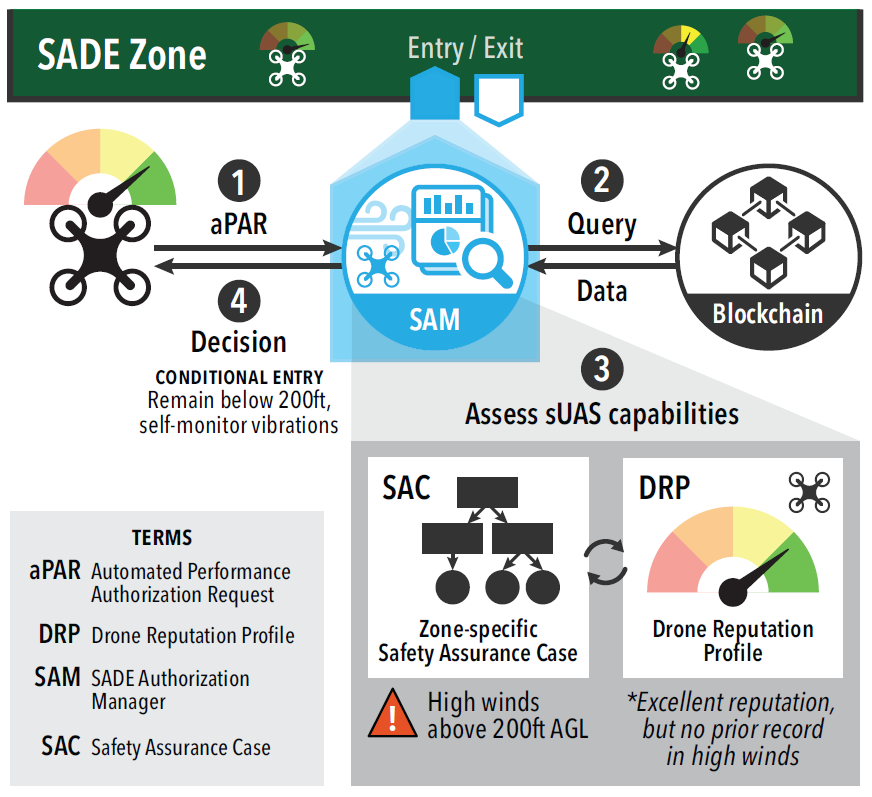The rapid increase in the number of sUAS deployed in the National Airspace (NAS) has led to an escalation in reported incidents, often related to hardware or software failures, human error, or environmental factors such as bad weather or radio interference . Therefore, assessing the capabilities of small Unmanned Aerial Systems (sUAS) prior to their flights in controlled zones is critically important. The process is currently labor-intensive and slow, creating long delays for pilots requesting flight authorizations.
The Safety-Aware Drone Ecosystem (SADE) will support automated authorization decisions for reputation-holding sUAS. An sUAS submits an Automated Permission Authorization Request (aPAR) which is then granted or denied with full transparency for the rationale behind the decision. SADE dynamically builds, tracks, and leverages the reputation of each sUAS, establishes conditions under which an sUAS can enter a specific region of controlled airspace, and is fully privacy-preserving, tamper-proof, and resilient. Each sUAS evolves (or devolves) its reputation over time through the collection, aggregation, and analysis of flight data in a Drone Reputation Profile (DRP).


On entering a SADE controlled airspace, the sUAS gives the SAM permission to retrieve its DRP from the Certifying Authority, and the SAM uses this data to assess the sUAS’ capabilities to complete the planned mission. The SAM then authorizes, denies, or provides probationary (monitored) access into the airspace. SADE communication is enabled by custom-designed and fabricated onboard specialized integrated circuits (ICs) to provide reliable, chirp-style communication between sUAS and the SAM.More about the project challenges here.
Read about the technical challenges next.